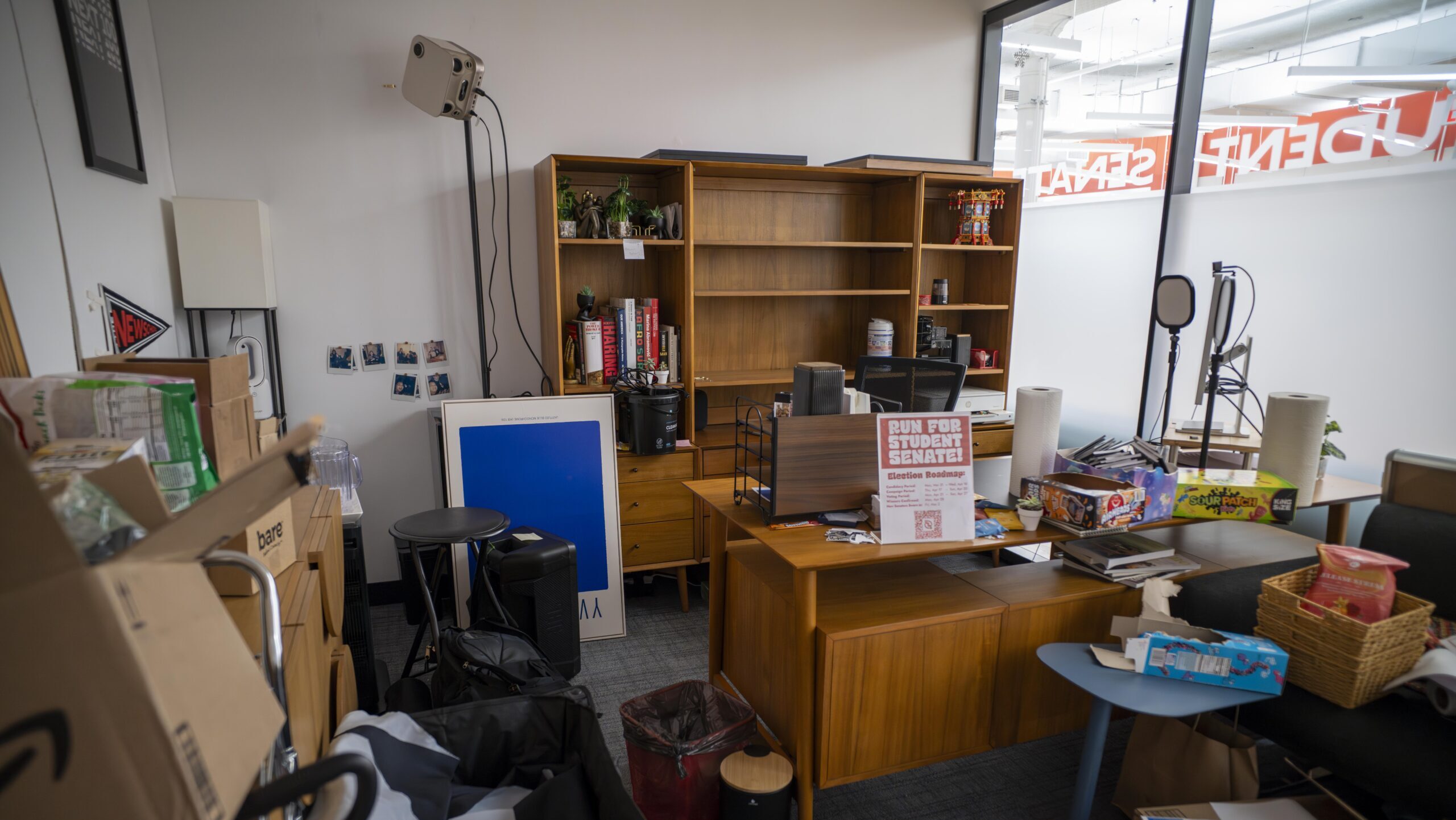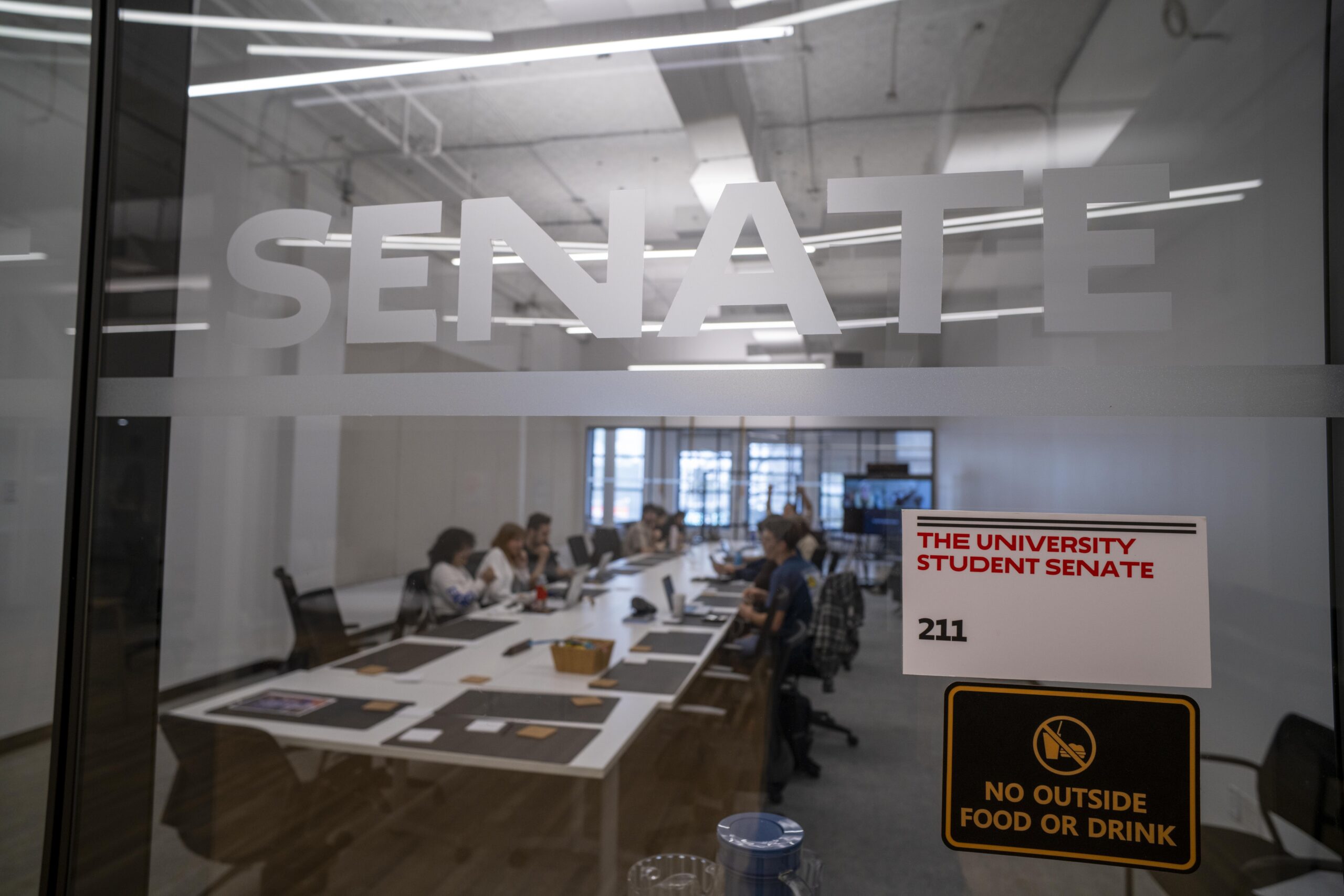Edmund Langdell, a fourth-year fashion design student at Parsons, works as a New School peer health advocate. In the bi-weekly “gender venting” group that he helps run on campus, trans and gender-nonconforming students are given a space to talk about gender and enjoy a space away from cisnormativity and judgment. In meetings, which tend to have five to ten students in attendance each meeting, students often share their experiences of feeling isolated and sometimes mistreated.
“Professors treat us differently than other students. The most common issues are around misgendering,” Langdell said. “There’s also stories about professors not letting their students make work about being trans. Other professors will pressure their students to make work about their trans identity when they don’t want to.”
The New School markets itself as a progressive school in terms of inclusivity, yet with repeated reports of misgendering and little attention paid to faculty training around gender identity, the New School Free Press spoke with a few transgender students who have felt unheard, and excluded.
Langdell recalled a personal experience with a professor assigning him more work than his cis-gender classmates because of his trans identity and the nature of his work.
Langdell said that, in a class where he was designing clothes for trans people, he was assigned to conduct five times as many interviews than any other students in order to prove that there was a market for his work.
Merrie Snead, The New School’s communications & community relations manager provided a statement from the university on the matter.
“The School of Fashion is committed to supporting an inclusive learning environment, and we expect all faculty to encourage diverse forms of gender identity and expression in student work. We were concerned to learn that this student felt singled out for their project, and are looking into the situation.”
With these recurring issues, some students have expressed that its difficult for them to believe the university is as progressive and inclusive it claims to be.
Blair Overton, a third year student in Strategic Design and Management at Parsons, described her experience as a transgender woman at The New School.
“One of my teachers told me that they go through training that discusses pronouns, but only one of my teachers in my three years here have had students go around and say their pronouns,” she said.
The New School offers faculty training surrounding gender-related conversations. The trainings are made available to all faculty, but are voluntary. Rita Breidenbach, the Assistant Provost for Faculty Development at The New School, said that at the new full-time faculty orientation this past August, the university had a student panel that included Edmund Langdell, where students recounted their experiences with New School faculty and how certain situations around misgendering could be avoided.
“New part-time faculty are required to attend an orientation, offered each semester, and we do talk about gender issues and the question of pronouns and how to handle them,” Breidenbach said. “We talk about issues of equity, diversity and inclusion as fundamental to good teaching; you can’t be a good teacher without ensuring an inclusive and equitable classroom and syllabus. But we have 2,000 part-time faculty and 400 full-time faculty, roughly, and reaching them all is, of course, a challenge.”
Based on a conversation he had with Rhonnie Jaus, vice president for equal employment opportunity, affirmative action, and compliance at the university, Langdell said that part-time faculty aren’t required to attend these trainings, and that when a student reports that a professor is being transphobic or homophobic, it takes three reports before the professor is asked to take gender inclusivity training.
When The New School Free Press reached out to Rhonnie Jaus for comment, Snead, in the New School communications department, provided this comment.
“The New School is committed to creating and sustaining an environment where students, faculty and staff can study, work and thrive unhampered by discrimination or harassment. All complaints of harassment or discrimination are taken seriously and analyzed on the unique facts and circumstances of each case,” Snead said. “Where warranted, appropriate remedial action will be applied on a case by case basis, whether it be training or other corrective action. Our goal is to ensure that the complained-of conduct is not repeated.”
Breidenbach advises faculty to ask students to share their pronouns if they choose to. But being asked to share your pronouns in this way may single out trans and non-binary students, bringing attention to an aspect of them that may be seen as different than the societal norm, and is exclusionary of all cis- and cis-passing students.
“In almost all of my classes thus far, I am always the only trans person in class. There have been many occasions where students and teachers will misgender me or say things that are transphobic. In some of my classes I will go ahead and make the step to introduce my pronouns so that people will not misgender me,” Overton said. “There was one instance when my teacher had avoided using my pronouns all semester and then he referred to me with the wrong pronouns in front of the whole class went ‘I’m sorry, did I refer to you incorrectly?’ As if him misgendering me was not embarrassment enough, he went on to single me out.”
Breidenbach said that this is not an issue with new-hires, “It’s people who’ve been here for a long time who don’t feel equipped to handle issues that are alien to them and their generation,” she said.
“At this school it feels very isolating to be transgender, especially as someone who is transitioning post-puberty where it is very public. I feel none of my teachers or classmates understand my situation, and have no issue being openly ignorant or singling me out,” Overton said.
Breidenbach said that Langdell has since been brought back to work on creating a guide for faculty on handling gender issues.
Langdell confirmed, saying that he is “collaborating with educators on resources for educators of all age groups, from early childhood through university.” The resources will likely include a training workshop for university professors, a written resource guide, and videos. The work is being done with the intention, Langdell said, “of helping educators to support their trans students, and to facilitate conversations about gender in the classroom.”







